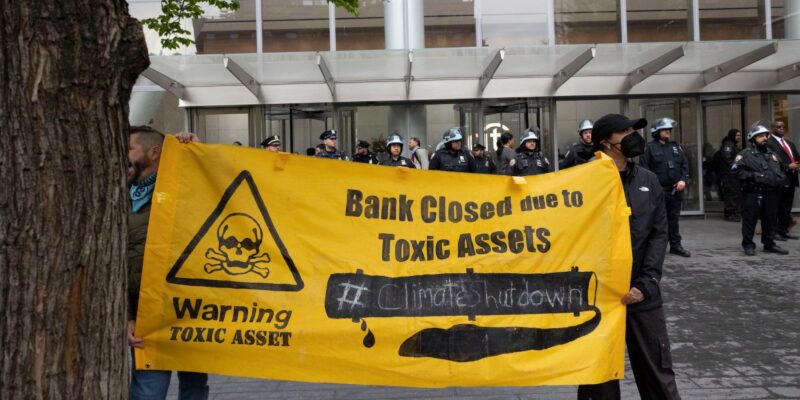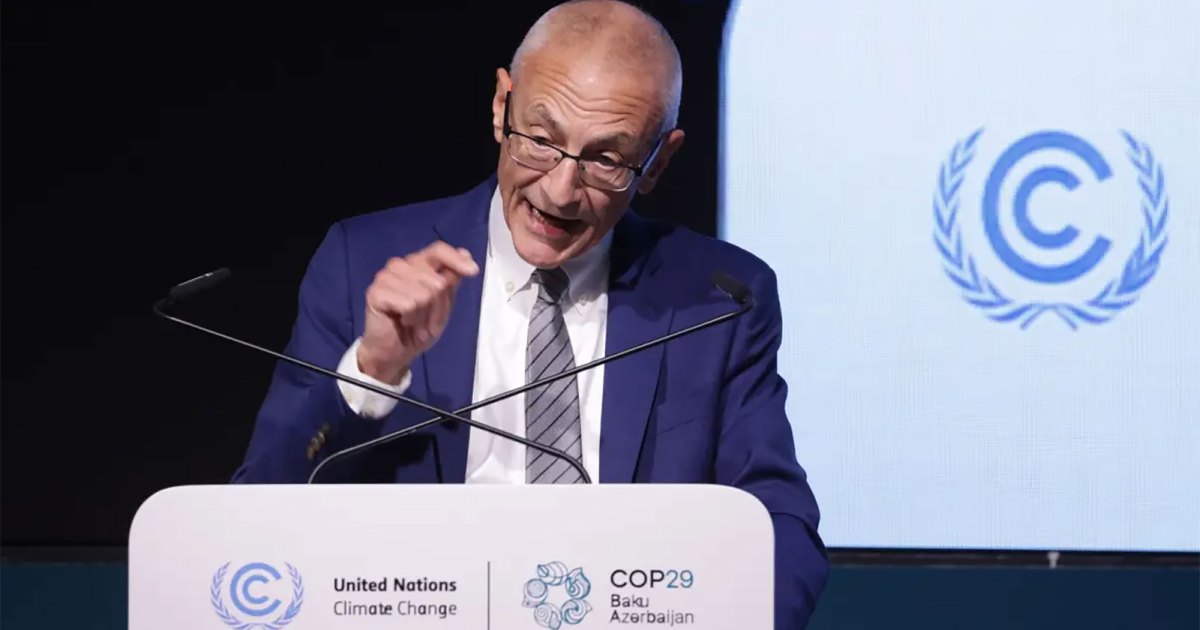
This story was originally published by the Guardian and is reproduced here as part of the Climate Desk collaboration.
The world’s big banks have handed nearly $7 trillion in funding to the fossil fuel industry since the Paris agreement on carbon emissions, according to research.
In 2016, after talks in Paris, 196 countries signed an agreement to limit global heating as a result of carbon emissions to at most 2°C above preindustrial levels, with an ideal limit of 1.5°C to prevent the worst impacts of a drastically changed climate.
Many countries have since promised to reduce carbon emissions, but the latest research shows private interests continued to funnel money to oil, gas, and coal companies, which have used it to expand their operations.
Eight in 10 of the world’s most eminent climate scientists now foresee at least 2.5°C of global heating, according to the results of a Guardian survey published last week—an outcome expected to lead to devastating consequences for civilization.
Researchers for the banking on climate chaos report, now in its 15th edition, analyzed the world’s top 60 banks’ underwriting and lending to more than 4,200 fossil fuel firms and companies causing the degradation of the Amazon and Arctic.
Those banks, they found, gave $6.9 trillion in financing to oil, coal and gas companies, nearly half of which—$3.3 trillion—went towards fossil fuel expansion. Even in 2023, two years after many large banks vowed to work towards lowering emissions as part of the Net Zero Banking Alliance, bank finance for fossil fuel companies was $705 billion, with $347 billion going towards expansion, the report says.
US banks were the biggest financiers of the fossil fuel industry, contributing 30 percent of the total $705 billion provided in 2023, the report found. JP Morgan Chase gave the most of any bank in the world, providing $40.8 billion to fossil fuel companies in 2023, while Bank of America came in third. The world’s second biggest financier of fossil fuels was the Japanese bank Mizuho, which provided $37.1 billion.
London-based Barclays was Europe’s biggest fossil fuel financier, with $24.2 billion, followed by Spain’s Santander at $14.5 billion and Germany’s Deutsche Bank with $13.4 billion. Overall, European banks stumped up just over a quarter of the total fossil fuel financing in 2023, according to the report.
Tom BK Goldtooth, the executive director of the Indigenous Environmental Network, which co-authored the study, said: “Financiers and investors of fossil fuels continue to light the flame of the climate crisis. Paired with generations of colonialism, the fossil fuel industry and banking institutions’ investment in false solutions create unlivable conditions for all living relatives and humanity on Mother Earth.
“As Indigenous peoples, we remain on the frontlines of the climate catastrophe, and the fossil fuel industry targets our lands and territories as sacrifice zones to continue their extraction. Capitalism and its extraction-based economy will only perpetuate more harm and destruction against our Mother Earth and it must come to an end.”
Critics of the report said its methodology, which relied on investigating deals reported by financial market data companies such as Bloomberg and Refinitiv, meant researchers did not have a detailed view of what was being financed, and by whom.
Specifically, syndicated loans, bond issues, and underwriting arrangements often involved several banks with varying levels of exposure. And financing to fossil fuel companies to fund transition technology projects could not be distinguished from financing for new oil wells, they said.
Spokespeople for Barclays, Bank of America, JP Morgan Chase, Deutsche Bank, and Santander all emphasised that their organizations were supporting energy sector clients’ transitions toward more sustainable business models. Mizuho declined a request for comment.















